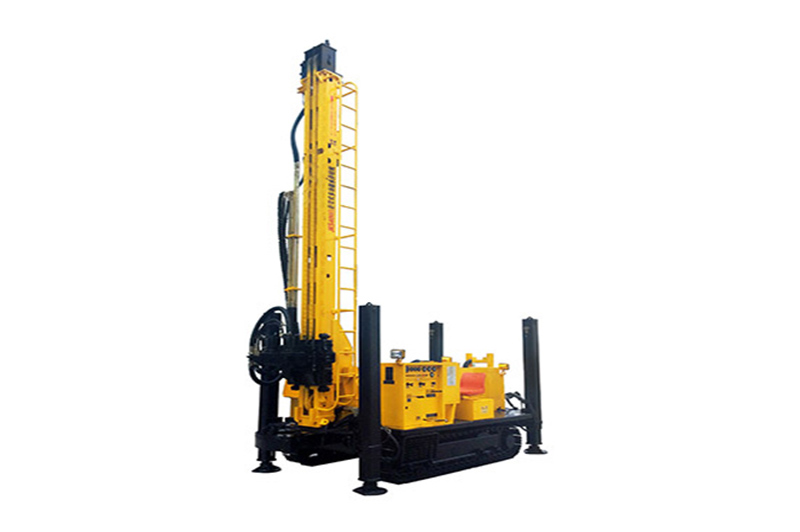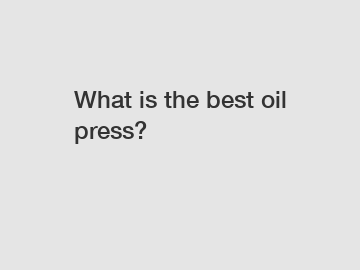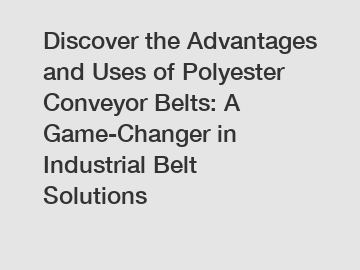How to Choose a Commercial Well Drilling Rig
Choosing a commercial well drilling rig is a significant decision that requires careful consideration and thorough research. The success of your drilling projects, whether for water supply, geothermal energy, or mineral exploration, hinges on selecting the appropriate rig for your specific needs. Here's a comprehensive guide to help you make an informed choice:
1. Define Your Project Requirements:
Start by clearly defining the scope and objectives of your drilling project. Determine the depth, diameter, and type of well you need to drill. Consider factors such as soil and rock formations, anticipated water yield, and any specialized requirements unique to your project.
2. Rig Type and Configuration:
There are various types of well drilling rigs, each designed for specific purposes. Some common types include rotary drilling rigs, cable tool rigs, and auger rigs. Choose a rig type that aligns with your project's demands and offers the required drilling method (e.g., rotary, percussion, or rotary-percussion).
3. Drilling Depth and Capacity:
Select a drilling rig with the appropriate depth capacity to reach your target aquifer or geological formation. Ensure that the rig's drilling depth capabilities match or exceed the depth required for your well.
4. Mobility and Accessibility:
Consider the terrain and accessibility of your drilling site. If your project involves remote or challenging locations, opt for a well drilling rig that offers mobility, compact size, and easy transportation. Trailer-mounted or truck-mounted rigs may be suitable for such scenarios.

5. Power Source:
Water Well drilling rigs can be powered by various sources, including diesel engines, hydraulic systems, or electric motors. Choose a power source that is efficient, cost-effective, and compatible with the available infrastructure at your drilling site.
6. Rig Specifications:
Review the technical specifications of potential rigs, including drilling speed, torque, pullback force, and drilling diameter capabilities. These specifications directly impact the efficiency and effectiveness of your drilling operations.
Additional resources:The Ultimate Guide to Engine Valves in Japanese Cars
What is a sideshift in forklift?
Mix it Right: Unveiling the Ultimate Ribbon Blender
Choosing the Right Battery Capacity for an Electric Wheel Loader in a Construction Project
What is a adjustable spacer block?
What are the advantages of investing in a PE Foam Recycling Machine?
Does plastic film really get recycled?
7. Safety Features:
Prioritize safety by selecting a well drilling rig equipped with essential safety features. Look for features such as automatic rod handling, emergency shut-off systems, and operator protection mechanisms to ensure a secure working environment.
8. Maintenance and Serviceability:
Consider the ease of maintenance and availability of replacement parts for the chosen rig. Opt for a rig from a reputable manufacturer with a strong service network, ensuring timely maintenance and support.
9. Budget Considerations:
Evaluate your budget constraints and balance them with the features and capabilities you require. While it's essential to stay within your budget, prioritize long-term value and performance over initial cost savings.
10. Manufacturer Reputation:
Choose a well drilling rig from a reputable manufacturer with a proven track record in the industry. Research customer reviews, seek recommendations, and assess the manufacturer's commitment to quality and customer support.
11. Regulatory Compliance:
Ensure that the selected rig meets all regulatory and environmental standards for drilling operations in your region. Compliance with local regulations and industry standards is essential to avoid legal issues and environmental impact.
Conclusion:
Selecting the right commercial well drilling rig is a critical step towards achieving the success of your drilling projects. By carefully assessing your project requirements, rig specifications, safety features, and budget considerations, you can make an informed decision that aligns with your goals and ensures efficient and effective drilling operations. Collaborate with experienced professionals and reputable manufacturers to ensure that your chosen rig meets industry standards and supports the sustainable development of your well infrastructure.
5 facts for safe use of aerial lifts
What is the working principle of fiber laser cutting machine?
Which Semiconductor X-ray Intelligent Counting Machine Solution outperforms others in precision and efficiency?
What machine uses wire to cut steel?
What is Biomass Briquetting Machine?
What is the purpose of skiving?
What are the advantages of using Standard Multihead Weigher for optimized purchase decisions?
158
0
0
Related Articles
-
112
0
0
-
Big Bag Lifter Coupon: How Can It Revolutionize Heavy Lifting for Your Business?
Big Bag Lifter Coupon: How Can It Revolutionize Heavy Lifting for Your Business?
77
0
0
-
108
0
0
-
Which Airhorse Air Compressor Model is Worth the Investment?
Which Airhorse Air Compressor Model is Worth the Investment?
97
0
0
-
92
0
0
-
79
0
0
-
81
0
0
-
Which ceramic plate ozone generator is the best for purchase?
Which ceramic plate ozone generator is the best for purchase?
84
0
0









Comments
All Comments (0)